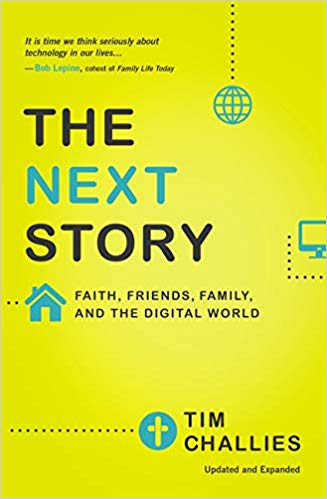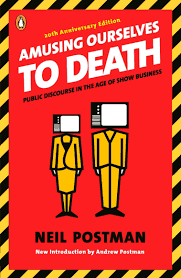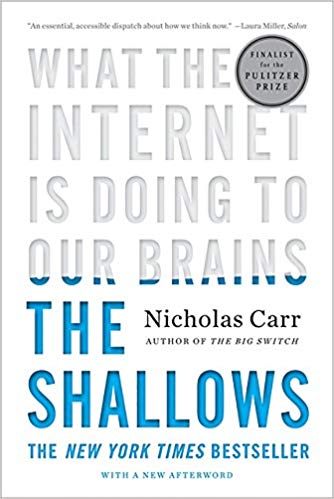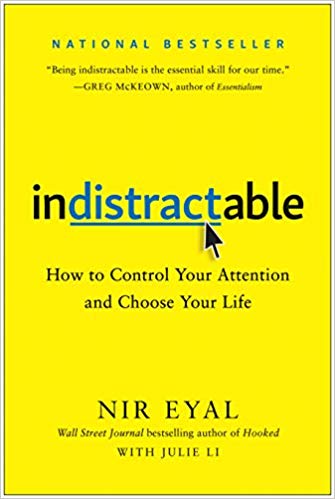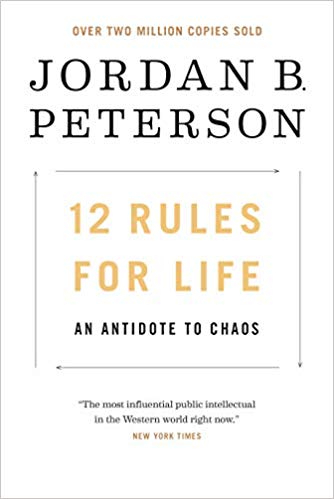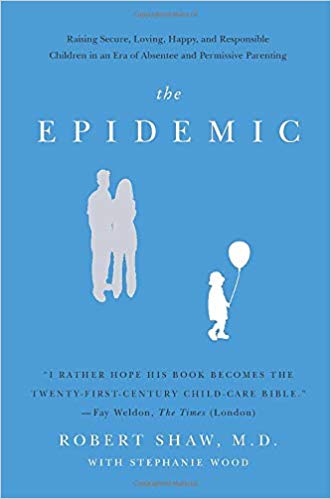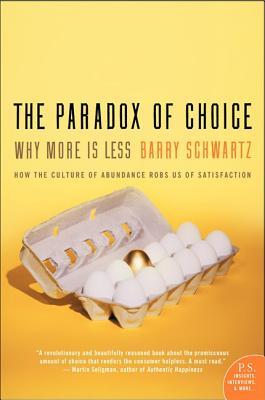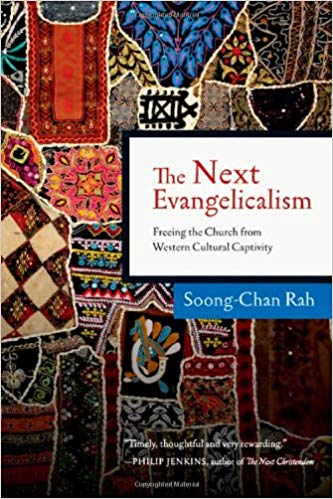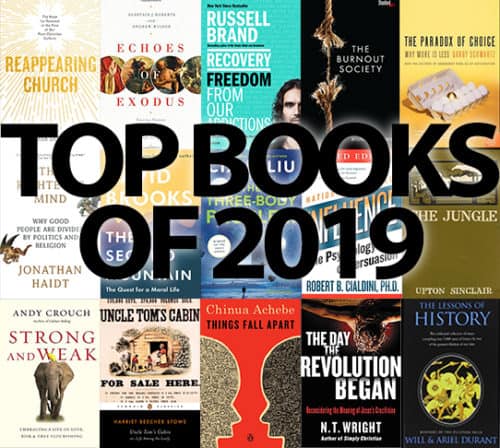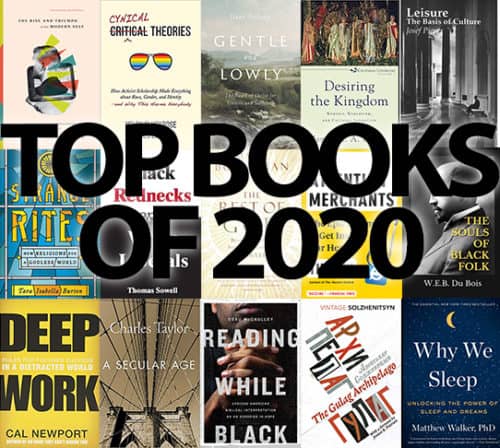
I love when others take the time to share their book recs (and brief write-ups so I can see if the book interests me). So in the spirit of Do Unto Others…
I’d highly recommend all of these books listed below. They’re all good. I’ve ranked them (so you can read the best first!) and put them in categories to make it easier to find something you want to read- whether it’s growing in your faith, reading for fun (fiction!), learning more about Race, or reading to to understand our chaotic world.
Overall, here’s the Top Dozen Books I read in 2020:
- The Rise and Triumph of the Modern Self – Carl Trueman
- Gentle and Lowly – Dane Ortlund
- Cynical Theories: How Activist Scholarship Made Everything about Race, Gender, and Identity–and Why This Harms Everybody – Helen Pluckrose
- Desiring the Kingdom: Worship, Worldview, and Cultural Formation – James K.A. Smith
- Leisure: The Basis of Culture – Josef Pieper
- Strange Rites: New Religions for a Godless World -Â Tara Isabella Burton
- Black Rednecks and White Liberals – Thomas Sowell
- The Rest of God: Restoring Your Soul by Restoring Sabbath – Mark Buchanan
- The Souls of Black Folk – W.E.B. Du Bois
- The Attention Merchants: The Epic Scramble to Get Inside Our Heads – Tim Wu
- Deep Work: Rules for Focused Success in a Distracted World – Cal Newport
- A Secular Age – Charles Taylor
And here they are, ranked in order of amazing-ness, by genre (all links are to my full Goodreads review).
Christian Devotional Books
- Gentle and Lowly -Â Dane Ortlund
- Definitely the book I recommended the most in 2020. Very accessible yet incredibly deep. An instant Christian classic.
- “This book is written…for those whose Christian lives feel like constantly running up a descending escalator.
- Matthew 11 tells us explicitly who qualifies for fellowship with Jesus: “all who labor and are heavy laden.
- You don’t need to unburden or collect yourself and then come to Jesus. Your very burden is what qualifies you to come.”
- Desiring the Kingdom: Worship, Worldview, and Cultural Formation – James K.A. Smith
- Still chewing on this book because it’s so counter to my nature. Smith argues that we are not thinking things. We are primarily desiring, worshipping things. So the way to change is not through information. But by re-forming our desires through new habits. And I think he’s right.
- The Rest of God: Restoring Your Soul by Restoring Sabbath – Mark Buchanan –
- I read this book in January pre-quarantine and it prepared me for the chaos of 2020. Really helped me understand Sabbath. Sabbath is not something we do when we’ve finished our to-do list. “Sabbath is a reprieve from what you ought to do, even though the list of oughts is infinitely long and never done…at the heart of worship is rest–a stopping from all work, all worry, all scheming, all fleeing–to stand amazed and thankful before God and his work. There can be no real worship without true rest.”
- Inexpressible: Hesed and the Mystery of God’s Lovingkindness – Michael Card –
- Inexpressible is the kind of book where you get more than you bargained for. Michael Card is full of wisdom, and profoundly understands the Bible. So you learn about Hesed, but in the process you learn to better read the Bible (which is my favorite kind of book).
- The Good and Beautiful Life: Putting on the Character of Christ – James Bryan Smith
- Evangelism as Exiles: Life on Mission as Strangers in our Own Land – Elliot Clark
- Is the Bible Good for Women? – Wendy Alsup
- Another Gospel – Alisa Childers
- Would have been higher if I liked apologetics. And if she would have not been so focused on critiquing progressive ‘christians’. It’s the most accessible, succinct apologetics book I’ve read (but I rarely read on apologetics!).
Understanding the Times
(once again this year, this was my favorite category!)
- The Rise and Triumph of the Modern Self – Carl Trueman
- This is not an easy read. Trueman traces the philosophical roots that made the phrase “I am a woman trapped in a man’s body” a normal phrase in 2020. One of Trueman’s great gifts to us as readers is taking very dense philosophical writings and explaining them simply: Writers/thinkers like Nietzsche, Hegel, Marx, Marcuse and Freud. “Put simply (or as simply as possible, given that this is Hegel and Marx)…”
- “Understanding the times is a precondition of responding appropriately to the times. And understanding the times requires a knowledge of the history that has led up to the present.”
- Cynical Theories: How Activist Scholarship Made Everything about Race, Gender, and Identity–and Why This Harms Everybody – Helen Pluckrose and James Lindsay
- Two atheists (who are pro gay rights) fear that Theory is destroying Western Civilization. Theory cannot build up, it can only tear down: “Equal access to rubble is not a worthy goal.”
- This relatively concise book covers a lot of ground re Theory: Gender, Queer, Critical Race, Post-Colonialism, Ableism, and the shift from individual rights to identity groups. The authors do an admirable job explaining the intentionally cryptic writing of Theory (one of the beliefs of Theory is that embedded in language are unjust power structures, and therefore language itself is suspect and should be queered (made fluid and incoherent))
- Theory= THE truth that cannot be argued with. A metanarrative that denies all metanarratives. A radical skepticism that assumes power inequality.
- After reading, I feel like I finally have a grasp on things like the distinction between Sex/Gender/Sexual Orientation.
- Leisure: The Basis of Culture – Josef Pieper
- Published in 1948, Leisure could not be any more relevant to the “Achievement Society” of 2020.
- Leisure is the best kind of book – brief, dense but accessible, a secular academic work but deeply religious, and packed with gold. I mean, TS Eliot wrote the introduction. You know it’s gonna be profound.
- True leisure is the antidote to what ails our “total work” world (where we only have worth if we are getting things done). Our common experience as moderns – boredom, anxiety, exhaustion, and despair – are all rooted in the “absence of leisure, for only someone who has lost the spiritual power to be at leisure can be bored. And then Despair, the sister of Restlessness, rears its hideous head.”
- “Be at leisure – and know that I am God” is the antidote.
- Strange Rites: New Religions for a Godless World – Tara Isabella Burton
- A friend of mine put it well: Rise and Triumph of the Modern Self explains how we got to now. Strange Rites vividly depicts what now looks like. A deep dive into the non-spiritual ‘religions’ of 2020 – LGBTQ, Wiccan, fitness groups, fandoms, incels, etc.
- Lesslie Newbigin prophetically wrote in the 1980’s:
- [There is no such thing as] “a secular society in which…there are no commonly acknowledged norms. Human nature abhors a vacuum. The shrine does not remain empty. If the one true image, Jesus Christ, is not there, an idol will take its place.”
- Strange Rites enumerates the many American idols that have taken the place of traditional religion.
- Written before the chaos of 2020, Burton predicted two likely candidates to become the predominant American secular ‘religions’:
- Social Justice
- Right Wing White Supremacy
- The Attention Merchants: The Epic Scramble to Get Inside Our Heads – Tim Wu
- Such a helpful and enjoyable book. A surprisingly spiritual, deep (though not difficult) read.Â
- Tim Wu really is a remarkable writer- not only giving a very readable “how we got to now” history of the attention economy (advertising/marketing and the rapid progression of radio–>TV–>smartphones) but also digging deeper into the Faustian bargain we strike in all the “free” apps we use. Wu builds a case that the Attention Merchants are not evil, but they do control you.
- The best and brightest minds in America are spending billions seeking to gain more of our attention. They do not have your best interests in mind. No one will legislate the Attention Merchants. We each must choose to take back control of our attention.Â
- “As William James observed, we must reflect that, when we reach the end of our days, our life experience will equal what we have paid attention to, whether by choice or default. We are at risk, without quite fully realizing it, of living lives that are less our own than we imagine.”
- Deep Work: Rules for Focused Success in a Distracted World – Cal Newport
- “Spend enough time in a state of frenetic shallowness and you permanently reduce your capacity to perform deep work.”
- “The ability to perform deep work is becoming increasingly rare at exactly the same time it is becoming increasingly valuable in our economy.”
- A Secular Age – Charles Taylor
- A sprawling epic of 900 dense pages that explains how we got from a world in 1500 where belief in God was all but inevitable to 2000 where belief in God is unlikely. This is what I call a Source book. A fountainhead book from which hundreds of other books flow. Worth trudging through, even if much goes over your head. I’d recommend reading How (Not) to Be Secular by James KA Smith first. Then read A Secular Age. Then read Disruptive Witness by Alan Noble and Our Secular Age. How Not To will give you the framework needed to understand and digest Taylor’s massive tome. Disruptive and Our Secular will help you apply it (and, especially if you are Protestant, to interpret it).
- Digital Minimalism: Choosing a Focused Life in a Noisy World – Cal Newport
- Digital Minimalism was written to help us find a way “to be fully human.” The main obstacle= our phones. Super helpful book.
- How (Not) to Be Secular: Reading Charles Taylor – James KA Smith
- A brilliant distillation of Taylor’s A Secular Age. But if you’re looking for the SparkNotes to A Secular Age, keep looking.
- This is not a light read. Here’s a sample sentence: “In other words, hermeneutic phenomenology’s critique of foundationalism and correspondence theories of truth should also underwrite a critique of closed spin.”
- Thanks James KA. I know EXACTLY what you mean.😂
- Usually when someone write “in other words” you’re about to get a more understandable version…
- How to Reach the West Again: Six Essential Elements of a Missionary Encounter – Tim Keller
- So much wisdom in this short little book. Worth reading if only for the footnotes – to see which books have been most helpful to Keller in understanding the collapse of Western Civilization and the decline of American Christianity.
- Facing Leviathan: Leadership, Influence, and Creating in a Cultural Storm – Mark Sayers
- Live Not by Lies: A Manual for Christian Dissidents – Rod Dreher
- Dreher is a bit Chicken Little “the sky is falling!” for my tastes. But I did find his logic compelling as he sounds the alarm re progressive Orwellian speech control. This book (and Jordan Peterson!) made me want to read and understand Gulag Archipelago. To understand totalitarianism and understand what might be happening in our country. Whether you think Twitter et al were justified in silencing right wing insurrectionists, Dreher’s book predicted the danger of tech corporations controlling free speech (and raises the alarm re a surveillance state). Most helpfully, he highlights the faith and courage of Christians from Eastern Europe.
- Indistractable: How to Control Your Attention and Choose Your Life – Nir Eyal
- Nir Eyal wrote the book on how to make apps that suck up all your time. Literally, Eyal wrote the book used by Facebook, Twitter, Snapchat- Hooked: How to Build Habit-Forming Products.
- So Eyal wrote the antidote, Indistractable, to help us fight back against the distraction of our phones, a superpower Eyal calls the “the most important skill for the twenty-first century.”
- Indistractable is surprisingly spiritual. Eyal spends the first 1/5th of the book digging into the question: “Why are we perpetually restless and unsatisfied?”
- “In the future, there will be two kinds of people in the world: those who let their attention and lives be controlled and coerced by others and those who proudly call themselves ‘indistractable.”
- “Being indistractable means striving to do what you say you will do. If you care about your work, your family, and your physical and mental well-being, you must learn how to become indistractable.”
- Bad Religion: How We Became a Nation of Heretics – Ross Douthat
- Competing Spectacles: Treasuring Christ in the Media Age – Tony Reinke
- A deep dive into how images effect us spiritually.
- Some good insights on boredom and our zero-sum attention. “We are creatures shaped by what grabs our attention — and what we give our attention to becomes our… reality. We become like what we watch.”
Race
- The Souls of Black Folk – W.E.B. Du Bois
- Written around the turn of the century (early 1900’s), it is heart-breaking that this book is just as relevant as the day it was written: “the problem of the Twentieth Century is the problem of the color line.”
- Brilliantly insightful and gut-punchingly honest:
- “The history of the American Negro is the history of this strife…He would not bleach his Negro soul in a flood of white Americanism, for he knows that Negro blood has a message for the world. He simply wishes to make it possible for a man to be both a Negro and an American, without being cursed and spit upon by his fellows, without having the doors of Opportunity closed roughly in his face.”
- Black Rednecks and White Liberals – Thomas Sowell
- I’m guessing this book is controversial. But two things that stood out:
- Why did Slavery, an accepted reality in EVERY civilization since the beginning of recorded history, disappear in a matter of 100 years? The ability to see slavery as evil could only could be found in Christianity. And it was the might of the British navy that forced other cultures to see things their way: “It was essentially European imperialism which ended slavery.”
- He believes it a debilitating message to “treat the history of blacks as the history of white people’s treatment of blacks”.
- I’m guessing this book is controversial. But two things that stood out:
- Reading While Black: African American Biblical Interpretation as an Exercise in Hope – Esau McCaulley
- A hopeful and insightful book. Particularly helpful: McCaulley shows how conservative black theologians have felt stuck between liberal white/black churches (that are talking about issues that matter to black people) and conservative white churches (that have good theology but totally ignore black issues).
- Worth reading alone for the chapters on “The Bible and Black Anger” and Slavery
- The Color of Compromise: The Truth about the American Church’s Complicity in Racism – Jemar Tisby
- I’ve read 40 books on racism/justice and this book might move to the top of the list as the first book I’d recommend reading to begin to understand racism in the American church.
- Tisby achieves the admirable feat of synthesizing 400 years of history (and thorough Doctoral research) into a very readable 200 pages.
- Despite the negative picture (which I think is right, and needed) I appreciate Tisby’s obvious love for the church. “My concern for the church and for the well-being of its people motivates my exploration of Christian complicity in racism. The goal is to build up the body of Christ by ‘speaking the truth in love,’ even if that truth comes at the price of pain.”
- Being Latino in Christ: Finding Wholeness in Your Ethnic Identity – Orlando Crespo
- Beneficial for any ethnicity to learn from (like me: I’m a middle aged white man). Hopeful and honest.
- The “Ethnic Identity/Assimilation Grid” alone is worth the price of the book! VERY helpful, especially for ethnic minorities (or anyone that cares about ethnic minorities).
- I appreciate Crespo’s balance between giving attention to understanding our ethnicity “without falling into idolatry of ethnicity.”
- Incidents in the Life of a Slave Girl – Harriet Ann Jacobs
- The brutal autobiography of a slave girl in the 1800’s.
- The Beautiful Community: Unity, Diversity, and the Church at Its Best – Irwyn L. Ince Jr.
- Deeply theological.
- Unsettling Truths: The Ongoing, Dehumanizing Legacy of the Doctrine of Discovery – Mark Charles
- Charles, a Native American, pens a scathing critique of white American Evangelicalism. I disagreed with a lot in this book. But I always appreciate unfiltered truth and honesty.
NonFiction
- Why We Sleep: Unlocking the Power of Sleep and Dreams – Matthew Walker M.D.
- Fascinating. Partly because we still understand so little about sleep. And partly because what we DO know is that sleep is a “remarkable Swiss Army knife of health and wellness.”
- Sleep helps you in ALL areas of life: physically (athletes who sleep more, perform better), emotionally (sleeping is like a free counseling appointment every night as your brain is washed with soothing hormones, helping you cope with the stress/trauma of the day), and mentally (cognitive ability is directly tied to amount of sleep).
- “There does not seem to be one major organ within the body, or process within the brain, that isn’t optimally enhanced by sleep (and detrimentally impaired when we don’t get enough).
- Gulag Archipelago (abridged) -Â Aleksandr Solzhenitsyn
- Gulag is worth reading for Solzhenitsyn’s insights into the roots of evil. It’s essentially a 500 page meditation on evil. Where does it come from? How do we prevent the Gulag-kind-of-evil that makes Hitler’s concentration camps pale in comparison?
- The Body: A Guide for Occupants – Bill Bryson
- “Most of the best technology on earth is right here inside us.” Bryson makes learning fun. A fascinating tour through the wonder of the human body and medical history (which leads me to worship, even if the author is staunchly atheist).
- “Until 1900 you had a less than 50% chance of a doctor helping you rather than hurting you.”
- Country Driving: A Journey Through China from Farm to Factory – Peter Hessler
- Fun way to learn about a rapidly modernizing China. Hessler is a great storyteller.
- The Psychology of Money – Morgan Housel
- The best short book I’ve read on finances and investing. VERY helpful and concise.
- The 48 Laws of Power – Robert Greene
- How to murder, steal, and lie your way to the top. No hyperbole. The positive role models set forth are admirable folks like Mao Zedong (who likely killed more people than Hitler) and Empress Wu (who smothered her own baby to frame/kill her nemesis and ascend to the throne).
- 5 stars for fascinating stories, great writing, and often-brilliant psychological insight.
- 1 star for evilness.
- The Rape of Nanking -Â Iris Chang
- Maybe the most horrifying book I’ve ever read. Perhaps eclipsing the concentration camps or Gulags, the Rape of Nanking was pure evil. Like Gulag, this book is “a personal exploration into the shadow side of human nature.” I’ve been to the Nanking Massacre Museum a couple times, so this book was especially poignant.
- Rich Dad, Poor Dad – Robert T. Kiyosaki
- A few nuggets of gold in this classic investing/personal finance book.
- How to Fail at Almost Everything and Still Win Big: Kind of the Story of My Life – Scott Adams
- A very uneven book- brilliant practical wisdom on how to succeed, mixed with bizarre beliefs (“The Secret”-esque Affirmations- “if you believe it, it will happen”; we are all holograms created by aliens, etc), cheap shots at religion, and 100% wrong views on human nature (happiness comes from being rich and famous and consuming feel good entertainment- at all costs: avoid depressing books/movies – Adams would NOT like my book list!).Â
- But it’s the most fun you’ll have while learning about leadership and success!
- A Prayer for Orion: A Son’s Addiction and a Mother’s Love – Katherine James
- The Only Plane in the Sky: An Oral History of 9/11 – Garrett M. Graff
- Flu: The Story Of the Great Influenza Pandemic of 1918 and the Search for the Virus That Caused It – Gina Kolata
Fiction
- The Death of Ivan Ilych – Leo Tolstoy
- What a depressing, profoundly moving little book. Tolstoy is so gifted at articulating the inexpressible, in this case: the inner thoughts and swirling turmoil of a dying man.Â
- We are all a rock dropping from the sky, increasing in speed, hurling toward an impact with the earth.
- So how should we then live?
- Great Expectations – Charles Dickens
- This is the first Dickens book that I’ve read and I’m joining the Dickens fan club. Such a clever, talented writer. I really think he’s going to be big someday!
- Incredible plot, scores of memorable characters, and full of great moral truths and justice. Such a deep meditation on the value of loyal friends over the empty pursuit of worldly gain. Incredible virtuous characters to emulate and foolish characters to learn by.
- And one of the funniest novels I’ve ever read.
- Anna Karenina – Leo Tolstoy
- Many consider it the greatest novel of all time. Not for the faint of heart. Full of amazing writing. But parts of it are a slog…
- I rarely will underline as I read fiction books but I underlined 100 different passages in Anna Karenina- mostly because of the beauty of the prose, sometimes because Tolstoy articulated so well something I’ve felt but never seen put to words.
- The Fellowship of the Ring (The Lord of the Rings, #1) – J.R.R. Tolkien
- Read this with two of my boys. Such fun.
- The Devil – Leo Tolstoy
- Another short story – on the power of lust to destroy a life.
- The Scarlet Letter – Nathaniel Hawthorne
- Not the easiest book to read. The writing is wooden (the opposite of Dickens/Tolstoy) and difficult to follow (I would read the Spark notes after most chapters to make sure I understood what was happening!).
- But the plot is incredible and moving. Its themes have been constantly on my mind since I’ve been reading it- the devouring effects of hidden sin, the pharisaical hypocrisy of the self righteous, the humility and empathy that stems from an awareness of your own sin.
- The Stranger – Albert Camus
- Helped me understand Existentialism, one of THE predominant modern beliefs (and the message behind Pixar’s new movie Soul). Such a depressing worldview/book.
- “Since God does not exist and man dies, everything is permissible. One experience is as good as another; the important thing is simply to acquire as many as possible…all values collapse”
- I can’t think of a better summary of Instagram in 2020: life is found in acquiring as many as experiences as possible.
- Ready Player One – Ernest Cline
- 20,000 Leagues Under the Sea – Jules Verne (bit of a slog – but worth it, to read a sci-fi classic)
- Heart of Darkness – Joseph Conrad
- A Thousand Splendid Suns – Khaled Hosseini
